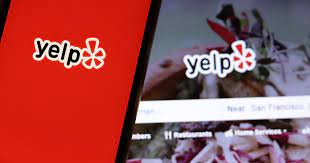Yelp, a review-writing platform that collects personal data? Yelp explains how data is sorted, processed, stored, or shared. They use user-generated content, but can deny access if rules are broken. Data acquired includes usage data via cookies and device metadata. Plus, personal info like names, emails, and phone numbers. Plus, social media links used to sign in for targeted ads. Read the Privacy Policy before using the app. It’ll protect your privacy. Get practical tips before sharing details online!
Yelp’s Privacy Policy: A Summarized Insight
Cyber threats are on the rise, so companies need to protect user data. It is essential to understand Yelp’s privacy policy. This policy outlines types of information collected from users, how it is used and shared with third parties. It also covers cookies, mobile device data, and location-based services. Users can control their data by opting out of targeted ads and deleting their accounts.
Yelp’s efforts to secure user data are reassuring. However, there have been past issues with Yelp violating FTC guidelines regarding reviews. Thus, transparent policies from companies like Yelp are important for gaining a user’s trust in the digital age.
What Personal Information Yelp Collects
To understand Yelp’s privacy policy on what personal information they collect, we have come up with a solution – explaining the section ‘What Personal Information Yelp Collects’ with the sub-sections: User Information Collected by Yelp, Information Collected Automatically by Yelp, and Information Yelp Collects from Third Parties.
User Information Collected by Yelp
Yelp collects user info to enhance their platform. They gather a huge variety of data, for example, names, addresses, phone numbers, IP addresses, device IDs, and other identifiers. Plus, Yelp monitors user activity on the site and how they interact with others. Payment info is taken when users make transactions on Yelp.Moreover, users can customize profiles and pick what personal info to reveal. They can also opt-out of giving some non-essential details.
Information Collected Automatically by Yelp
Yelp acquires info from different sources. These include device details, browsing activity, and search preferences. This data is examined to provide tailored services and better user experience. Yelp also uses cookies, pixels, plus other tracking technologies to transfer this info to their servers.
Furthermore, Yelp obtains info on business facts like location, hours, contact info, menu items, reviews from past customers, and photos shared by users. They also obtain data on user interactions with each business page such as engagement with reviews, adding/removing photos from listings, and reporting issues about businesses.
Yelp holds personal data such as name, email address, telephone number, etc. But they merely utilize it for creating an account for personalised experience. Yelp has taken many steps to ensure user privacy. Thus, there’s a low risk in sharing data with them since they strive to protect it.
Information Yelp Collects from Third Parties
Yelp collects data from external sources to improve its services. This info is gathered by approved partners. Yelp can access the user’s demographic, interests, and browsing activity. This enables Yelp to give personalized content, recommendations, and ads.
Third-party providers must have consent or licenses to share info with Yelp. All info gathered is managed by Yelp’s privacy policy. You can opt-out of allowing Yelp to collect data from third-parties through device settings or by contacting customer support.
Yelp takes every measure to ensure third-party info aligns with their policies and does not break any laws. Personal info is only for use in line with the provisions of the Privacy Policy.
To protect personal data when using social media and other apps, read and understand their privacy policy. Pay attention to permissions asked during installation and review app permissions regularly in device settings- app – app permission.
How Yelp Uses Your Information
To understand how Yelp uses your information, delve deeper into their privacy policy and look at the sub-sections – Yelp’s use of personal information, personalized recommendations from Yelp, and marketing and promotional communications. Each sub-section plays a vital role in shaping Yelp’s business model and can impact your experience as a user.
Yelp’s Use of Personal Information
Yelp accesses personal data for various functions – verifying user identity, offering personalized recommendations, and improving platform performance. Plus, they have to obey legal requirements. They also share user info with third-party suppliers for marketing. Yelp promises that their security systems and privacy policies guard user data.
They use personal info to customize the user experience. This means tailoring search results and recommendations based on past activity and location. Plus, Yelp uses user reviews and ratings to increase business rankings and give accurate info.
It’s worth noting that Yelp shares data with outside companies to run targeted ads. They guarantee it’s done safely and in line with regulations. But, it’s important to read the privacy policies properly.
To keep your data secure on Yelp, check their policies often for any changes. Also, be aware of the permissions you allow when using the platform. By taking these steps, you can get the best out of Yelp and stay safe.
Personalized Recommendations from Yelp
How does it work? Yelp crafts individualized advice according to your personal details.
Particular Cuisine Selections: Yelp remembers the cuisine you’ve enjoyed before and proposes specific options.
Trendy Businesses: With nearby user history, Yelp picks out fashionable restaurants and fresh food spots.
Individual Tastes: Taking into account your diet requirements, like veganism, Yelp offers individualized recommendations.
This precise knowledge helps offer appropriate suggestions for diners on specialty menus and dietary preferences that could influence your choices.
Marketing and Promotional Communications
Yelp stores your info and may use it for promotional purposes. This might include tailored ads, emails, or notifications based on your activity. They may also share your info with third-party advertisers to customize ads for you.
To stop these methods of communication, you can adjust your notifications in the Yelp app or website. You can also manage your ad preferences in device settings or via different ad networks.
It’s important to note that Yelp’s advertising partners may have their own privacy policies and data sharing practices. It’s best to check these before engaging with any ads or promos.
Yelp’s Sharing of Personal Information
Yelp collects user data, like names, searches, location details, and reviews. They share this data with third parties for advertising, research, or personalized content. Yelp wants businesses to connect with customers through their platform. They do this by giving customer insights on business pages. They may use anonymous or non-identifiable data for advertisers and partners.
In 2014, a privacy breach showed how Yelp had exposed zip codes of user reviews. This allowed hackers to impersonate individuals and post false comments. It caused damage to Yelp’s reputation and trustworthiness.
Sharing Information with Third Parties
Yelp may share your personal info with third parties. This is for advertising, analytics and other business purposes. Companies helping Yelp provide its services, such as payment processors and website hosting providers, may get your data.
Yelp may also share your information with advertisers or marketing partners. This is so they can deliver relevant ads to you.
Law enforcement or government officials may get your info if needed by law. Or, if Yelp believes disclosing it is necessary to protect its rights or the safety of its users.
It is important to know how Yelp shares your information. That way, you can make informed decisions about using their platform. Knowing who can access your data means you can better protect yourself from potential privacy breaches. Also, your personal info remains confidential.
Control Over Personal Information
We all have the power to control our data. By managing and distributing it, we can keep a grip on it. This applies to multiple areas such as online deals, health care, public files, and social media websites.
To get this control, there are various choices. Change privacy settings on digital platforms. Use two-factor authentication or complicated passwords for protection. Another option is subscribing to Virtual Private Networks for online identity security.
People can opt-out of marketing drives. Unsubscribe from emails or take time to read contractual terms before signing. Read contracts carefully to see how their data will be used and if any organizations are involved.
Restrict Yelp’s use of data? You have many options! You can:
- Opt-out of ads based on your activity and interests.
- Stop sharing location data or limit it when the app is not in use.
- Customize your privacy settings in the account preferences section.
- Avoid personalized ads while still using the platform.
- Yelp collects demographic info through logs, partners, or contests.
Security Measures Implemented by Yelp
Yelp uses advanced encryption techniques to secure data transmission. It also implements strong password policies and access control mechanisms to protect user data. To maintain a secure infrastructure, Yelp regularly carries out security assessments and employs professionals. The company also has continuous monitoring systems in place to detect potential threats.
Regulatory Compliance
Yelp has implemented strict privacy regulations to fulfill relevant data laws, such as the GDPR and CCPA. These regulations require Yelp to transparently collect user data, obtain consent, and enable users to exercise their rights.
To ensure customer info is secure, Yelp uses encryption, multi-factor authentication, security audits, and firewalls. Plus, staff are regularly trained on the latest cyber security practices. This keeps customer data safe and meets privacy standards.
Yelp is always innovating processes related to consumer privacy. They improve technologies for handling personal data and have senior staff to implement policies. A suggestion for companies is following ISO 27001, which is a globally-recognized standard that can increase efficiency while minimizing wastage.
Enforcement of Yelp’s Privacy Policy
Yelp firmly upholds their Privacy Policy. This protects users’ personal and confidential data from any unauthorized access and misuse. Yelp ensures compliance with their policy when dealing with sensitive info. They’ve also implemented strict accountability protocols to ensure customer privacy is always safeguarded.
Notably, Yelp partners with law enforcement to investigate any tampering, hacking, or theft of user data. In the event of a suspicion or breach, Yelp carries out internal investigations and alerts affected parties immediately. They also review their system for possible loopholes or breaches in compliance procedures.
As they manage sensitive info from thousands of customers worldwide, it’s essential Yelp prioritizes privacy protection and meets data protection regulation frameworks.
Conclusion and Additional Resources
To conclude on Yelp’s privacy policy and provide you with additional information and resources, the following sub-sections will assist you: a summary of Yelp’s privacy policy, and additional information and resources for Yelp users. These resources can help you make more informed decisions about how to best protect your privacy when using Yelp.





Be First to Comment